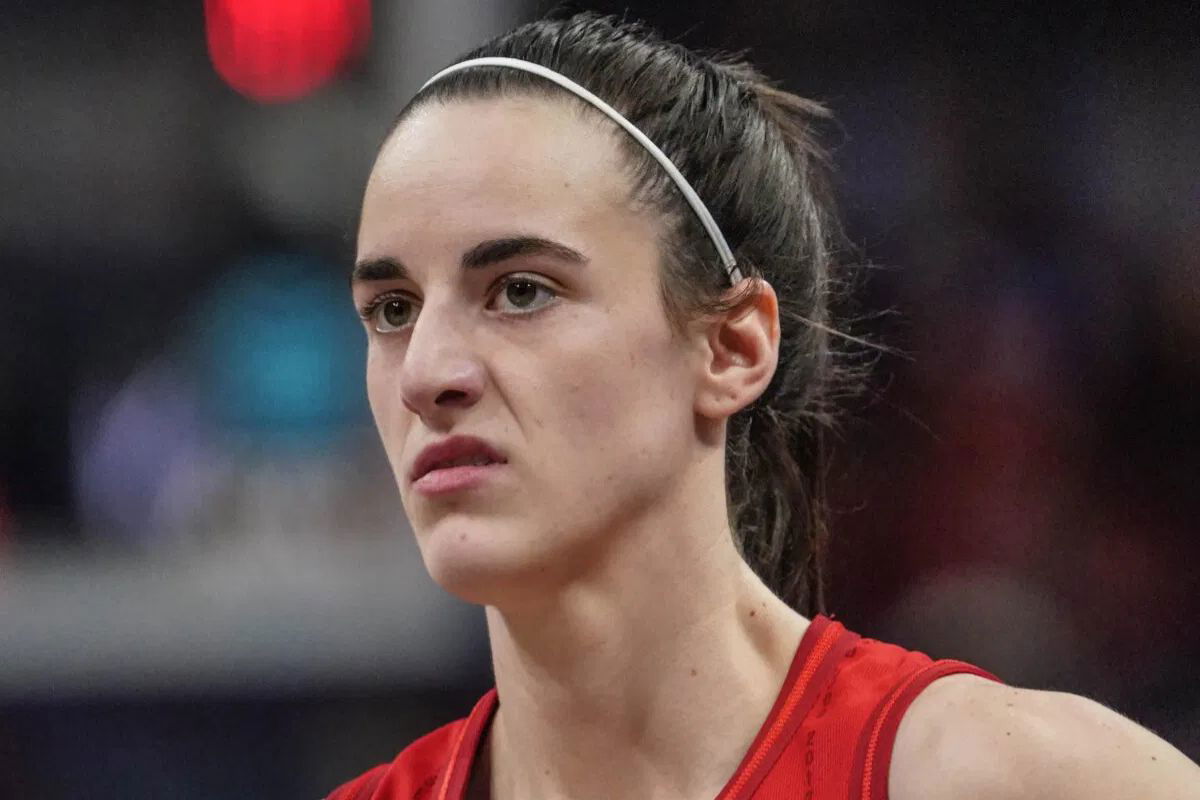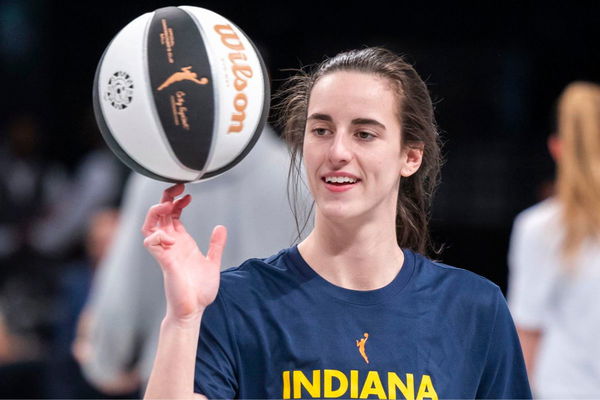

Be it her 19+ records in her first year or a historic achievement just two games into her second year, Caitlin Clark’s proved her worth every time. So, it makes sense why she’s leading the new generation of athletes. But with that comes a larger responsibility—to clear off any hurdles in the process. And the 23-year-old Iowa Hawkeyes standout has already done that. Just consider the 2023 NCAA Women’s Basketball Championship game. We are taken back to the moment with Clark’s latest appeal.
Watch What’s Trending Now!
It all comes up as Caitlin Clark and the Indiana Fever fell 91–90 to the Atlanta Dream in their second game of the season. Since the Fever are coming in with a re-tooled roster around Clark—and of course, a win against the Chicago Sky in the season opener—it was highly expected for them to grab another win.
But all those hopes shattered as Rhyne Howard, combined with Brittney Griner and Brionna Jones, gave the Dream the edge —especially since they outworked Indiana both inside and outside the paint. But despite the reality check, if you ask the Fever’s player who led with 27 points in the loss, it wasn’t really the Dream who made it difficult.
Instead, it was the officials’ timeouts that she found disrupted the flow. “Challenges cannot take that long. It ruins the flow of the game. I get it. It’s early in the year. The refs want to make the right call,” she said, calling out a bigger issue in W for Cathy Englebert in a postgame interview. “We can’t sit there for two and a half, three minutes on an obvious hit out of bounds off of them and still not know the call.”

Imago
Sport Bilder des Tages Indian Fever Caitlin Clark warms up before the first half against the New York Liberty at Barclays Center on Sunday, June 2, 2024 in New York City. PUBLICATIONxINxGERxSUIxAUTxHUNxONLY NYP20240602504 COREYxSIPKIN
For her, the team standing and waiting was something that chopped the flow of the game. And she’s absolutely right. Notably, the Fever lost by just one point. The Fever had control at several points but weren’t able to maintain it.
As the star explained, that came from interruptions during lengthy reviews—especially after hard-fought defensive stops or scoring runs. Just consider: the Fever had 19 fouls called on them, while the Dream had 22. So the game was clearly physical. Add in a close final score, and every foul call likely felt magnified. If the referees had to stop play for long reviews (even if justified), it naturally raised tensions and drained emotional momentum.
The Fever attempted to play aggressive, forcing 14 turnovers, while shooting a scorching 47.1% (8-for-17) from the three. But none of that worked in a one-point game. And it all came down to one thing: the uncertainty of a long decision can lead to frustration. And that’s a feeling all too familiar for Clark.
Back during the Iowa vs LSU finals game, Clark had received a technical foul for a delay-of-game violation after failing to immediately pass the ball to the nearest official. Notably, the rule was changed after this incident, and since then, no delay-of-game violations result in technical fouls for players. It had popularly come to be dubbed the ‘Caitlin Clark’ rule. While she hasn’t experienced something similar now, the 23-year-old is making her dissatisfaction known, and it is taking us back. Would CC’s remark mean something now?
Likely so. Because if you thought this was the first officiating concern in the pros, it wasn’t.
Caitlin Clark just highlighted a common issue
When Caitlin Clark and co, came up for a battle against Chicago Sky, a familiar issue was raised. After Clark shoved Angel Reese to the ground following a missed layup, the refs huddled for what felt like an eternity before upgrading the call to a flagrant 1.
Sure, the final ruling was fair. But by then, the energy in the arena had cooled, momentum had vanished, and fans were left watching refs stare at screens instead of watching players make plays. But, the issue isn’t just limited to W, it’s been there with NBA too.
The men’s pro league has its own share of replay chaos. Just consider the Clippers vs. Suns game, where the final 90 seconds stretched into 33 painful minutes because of multiple reviews.
So clearly, the issue is notable. But does it need to change? Maybe yes and no. Before coming upon a conclusion just consider what happened with Game 5 of the 2016 WNBA finals. It was when Nneka Ogwumike hit a clutch shot in the final minutes, but replays later showed it came after the shot clock expired.
The referees never reviewed the play, and the basket counted. The WNBA eventually admitted the mistake, but by then, the outcome had been sealed. A championship moment was tainted, not because the wrong call was made initially, but because the tools to correct it weren’t used properly. It’s a reminder that both missed and overused replays can hurt the game in different ways.
So, now what do you think??

